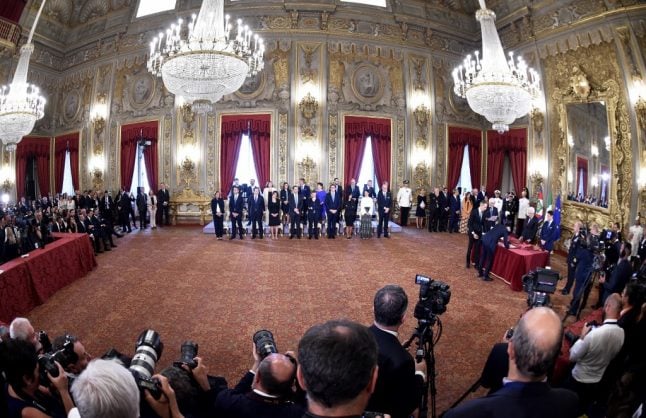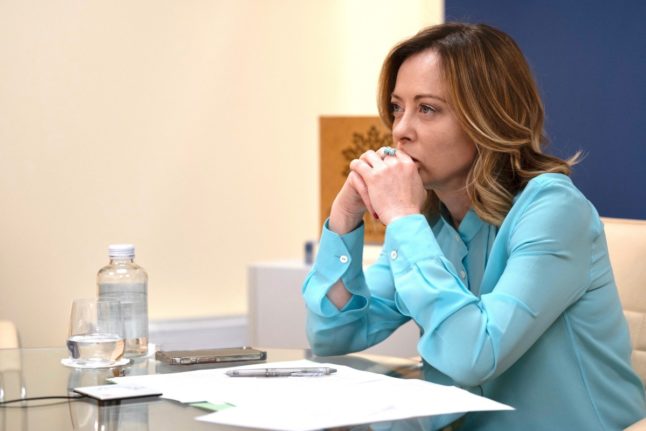Prime Minister Giuseppe Conte and his ministers from the anti-establishment Five Star Movement (M5S) and centre-left Democratic Party (PD) raised their right hands as they took the oath in the 16th century presidential palace in Rome.
“We're ready to give our utmost for the country,” M5S head Luigi Di Maio, the new foreign minister, said.

Luigi Di Maio (L) shakes hands with Prime Minister Giuseppe Conte as he is sworn in as foreign minister. Photo: Andreas Solaro/AFP
The coalition still faces a vote in parliament, set to take place in the lower house on Monday and the upper house on Tuesday.
“Good luck to the new government and its ministers. Let's change Italy!” PD head Nicola Zingaretti said.
Younger, more southern and pro-EU
First on the cabinet's to-do list is the 2020 budget, which has to be submitted to parliament by the end of September, and then to Brussels by October 15th.
The pick of the PD's Brussels-savvy Roberto Gualtieri as finance minister was hailed as “extremely positive, especially for the relationship with the EU” by Lorenzo Codogno, former chief economist at the Italian Treasury Department.
READ ALSO: Four key economic challenges facing Italy's new government
The previous coalition between the M5S and Matteo Salvini's anti-immigrant League had fought bitterly with the European Commission over its big-spending budget.
The markets welcomed the new cabinet, with Milan's FTSE Mib stock market up 0.5 percent after the swearing-in ceremony.
It is the youngest ever in Italy's post-war history — the average age being 47 years old — and has more ministers from the country's disadvantaged south than the wealthy north.
READ ALSO: Here is Italy's new cabinet in full

Photo: Andreas Solaro/AFP
'We'll oppose it'
Of the 21 ministers, nine hail from the PD, 10 from the M5S, one from the small left-wing Free and Equals party, and one has no affiliation with any political party — the new interior minister.
Luciana Lamorgese, a former Milan security chief, takes over from firebrand Salvini, the strongman who pulled the League from the previous coalition last month, collapsing the government. The social media wizard had hoped to send Italy straight to the polls to take advantage of his soaring popularity figures.
On Thursday he predicted the new government “won't last long”.
READ ALSO: How Matteo Salvini lost his gamble to become Italy's PM – for now
“We'll oppose it in parliament, in the town halls, in the town squares, and then finally we'll vote, and we'll win,” he said. The League head was reported to have refused to be in place at the interior ministry to hand over the keys to Lamorgese.
The new interior minister “is the anti-Salvini, mediatically-speaking,” said the Repubblica daily. “She has no social networks. She won't ever be seen doing live Facebook videos from the rooftop of the interior ministry.”
Lamorgese will, however, be tasked with handling Italy's divisive immigration issue, a subject that won Salvini mass votes.



 Please whitelist us to continue reading.
Please whitelist us to continue reading.
Member comments